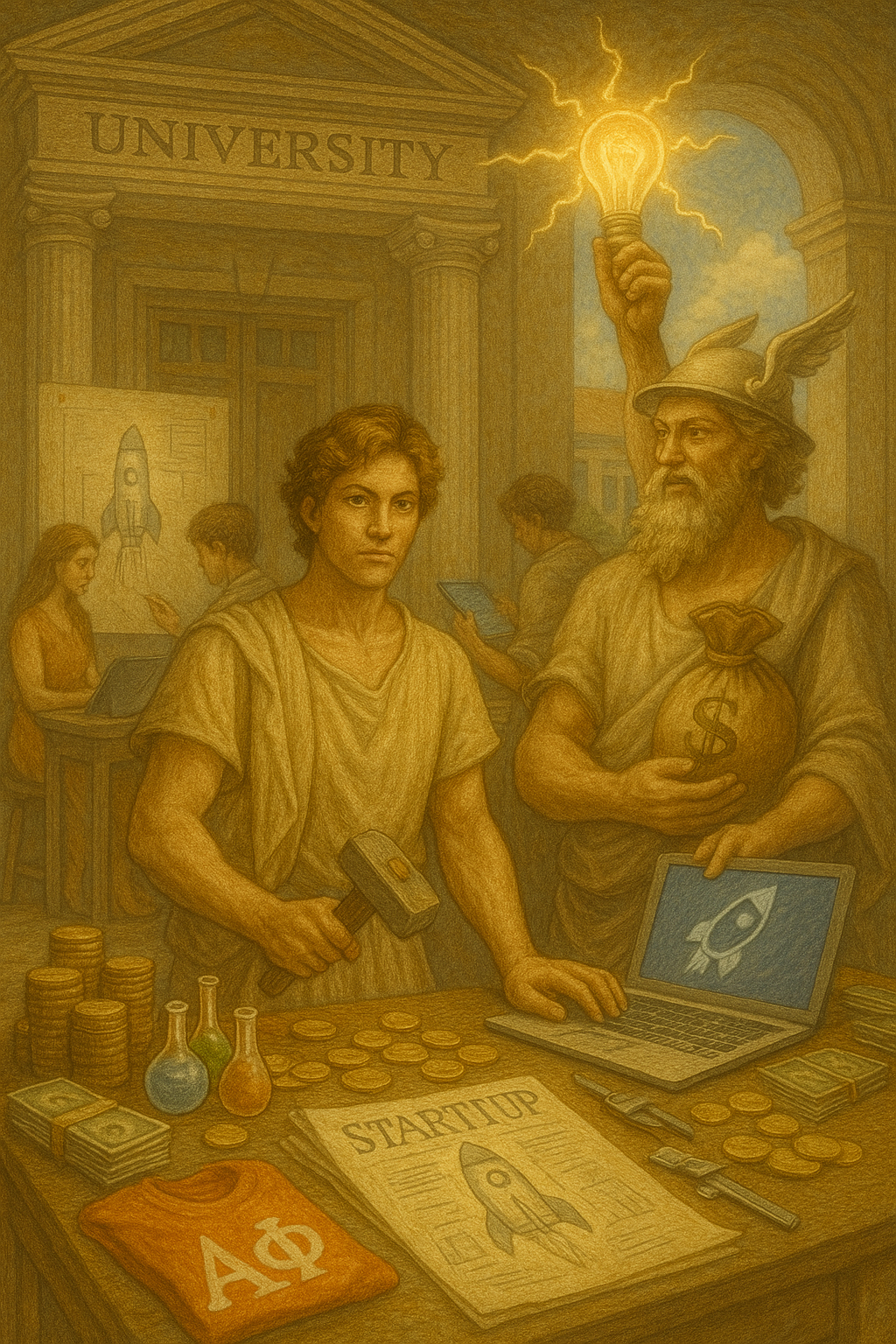
- Published on
- Authors

- Name
- ric de yuga 😄
🎓 From Lecture Halls to Launchpads: Rethinking the University as a Startup Studio
Universities were once temples of knowledge.
Today, they feel more like corporate pipelines.
Despite rising tuition, mental health issues, and an evolving job market, universities continue to:
- Prioritize historical knowledge over future creation
- Focus on tech’s past, not its potential
- Funnel students toward corporate obedience, not entrepreneurial freedom
It’s time to ask:
What if the university wasn’t a finishing school for Big Tech—but a launchpad for builders, founders, and inventors?
📚 The Problem: History Over Invention, Memorization Over Monetization
The current academic system trains students to:
- Write papers no one reads
- Obsess over outdated frameworks
- Regurgitate theories rather than solve real-world problems
Too many programs prioritize:
- Historical tech timelines (who built what, when)
- Rigid department silos that discourage interdisciplinary thinking
- Corporate job placement stats over student self-actualization
“Students graduate with debt, not dividends. With stress, not startups.”
🚀 The Vision: The Invention University Model
Let’s imagine a radical new system—Invention Universities:
Where students don’t just learn about the economy.
They build it.
🔧 Core Principles:
- 💡 Creation-First Curriculum: Every course culminates in a product, app, or pitch
- 💼 Business Incubation Instead of Exams: GPA replaced by MVPs and user traction
- 📲 Portfolio Over Paperwork: Students graduate with brands, patents, apps—not just resumes
- 💰 Earn-As-You-Learn Models: Build monetizable ventures while enrolled
- 🧠 Mentorship from Builders, Not Bureaucrats: Real founders guide real outcomes
🏛️ Structure:
- Cohort-based idea development
- Investor Demo Days every semester
- Peer feedback + customer discovery from Day 1
- AI copilots for design, code, finance, pitch decks, and testing
- Legal, IP, and launch support built-in
💸 Money Flow: Funded, Not Just Billed
Students pay tuition—but tuition pays back.
Each project is eligible for:
- 💵 Seed rounds via alumni and in-house VC funds
- 🤝 Equity-sharing partnerships with the university
- 🌐 Platform revenue splits (products made in school, sold via school stores or marketplaces)
- 🪙 Tokenized achievements that convert to investor access, perks, or scholarship discounts
“Imagine if tuition was equity in your own company. Suddenly education is an accelerator—not a delay.”
🎯 Outcomes That Matter
Invention Universities aim to graduate students who leave with:
- A fully launched brand, app, company, or product
- A team or community of co-founders
- Revenue streams already flowing
- Pitch decks and investor-ready data rooms
- An understanding of resilience, iteration, and vision
And if the venture fails?
The student still walks away with more experience than most MBA grads get in two years.
🏗️ This Isn’t a Fantasy—It’s a Necessity
With AI, no-code, and distributed markets:
- Anyone can build something impactful
- The barriers to entry have dropped
- But universities haven’t caught up
“Why teach students to work at Google when they could be building the next one?”
If we truly care about empowering the next generation, then let’s stop preparing them to fit in and start enabling them to stand out.
🧬 Final Thoughts: Universities That Make Builders, Not Just Workers
It’s time we unshackled the creative genius sitting in lecture halls across the world.
Let’s build institutions that:
- Teach coding, AND launching
- Teach history, AND invention
- Teach critical thinking, AND critical doing
The university of the future doesn’t grade your essays. It launches your life.
Would you like a pitch deck template for an “Invention University” or a mock curriculum design for a 4-year builder’s degree?
